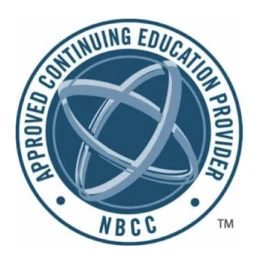Transition Onto the Right RLT Pathway for You

The new certification structure is our most comprehensive, high-quality training yet. This new structure will bring RLT into line with other established training programs and provide a platform for us to become evidence-based. We want RLT to be recognized as an important therapy school, included in classes and graduate programs around the globe. And, for RLT certified therapists, that means greater recognition and demand for your skills.
As part of the new structure, you access richer, more in-depth RLT training—with plenty of real-life practice. Practice is critical to cementing your confidence and skills as an RLT therapist, and that’s what this training provides, with 70 hours of small group practicums and mentoring.
Unsure what your options are?
This is your guide to the RLT Certification 2.0
We’ve made some exciting changes to the RLT certification to build even greater credibility, standards, and esteem for our certified therapists—and those of you who are already on your RLT journey can enjoy the benefits of our enhanced training at a special discount.
The options available to you differ depending on how far along you are in the certification program and your desired outcome.
This article will explain the difference between the old and new certifications and how to transition to the new training to help you determine your options.
What Are the Benefits of the New Certification?
The new certification structure is our most comprehensive, high-quality training yet. This new structure will bring RLT into line with other established training programs and provide a platform for us to become evidence-based. We want RLT to be recognized as an important therapy school, included in classes and graduate programs around the globe. And, for RLT certified therapists, that means greater recognition and demand for your skills.
As part of the new structure, you access richer, more in-depth RLT training—with plenty of real-life practice. Practice is critical to cementing your confidence and skills as an RLT therapist, and that’s what this training provides, with 70 hours of small group practicums and mentoring.
What’s the Difference Between the “Old” and “New” RLT Certification?
How Do I Transition to the New Certification?
Anyone already enrolled in the RLT certification program can transition to the new one for $2,900, which includes all of the practicums, mentoring, and case review.
12-month payment plans are available.
Transition to RLT 2.0
What if I Want To Stick With the Old Certification?
If you only have one or two elements of the “old” left to complete, you can join our “fast-track” pathway. Via this route, you can complete the outstanding requirements of the old certification to obtain your RLT certification and listing on the website.
You continue to pay as you have done before for the remaining elements of the “old” certification you are yet to complete. The only additional payment is $250 for a case review.
Case reviews are now essential for all students as part of the certification process, and this includes fast-track applicants too. You simply need to submit a recording of your work for review by our faculty team. This ensures we maintain the highest standards across all RLT certified therapists and secures your listing on the website. Find more information on how to submit your case review here.
You can apply for the fast-track certification until June 30, 2022, and have until the end of 2022 to complete it.
Transition to Fast-Track
What If I Don’t Qualify For Fast-Track?
If you have more than two outstanding elements, you can join our hybrid training pathway at either the “trained in RLT” or “certified in RLT” tier.
What’s the Difference Between “Trained” or “Certified” in RLT?
Both will give you access to the training materials you need to help you understand and use RLT in your work. However, choosing “certified in RLT” means you access greater hands-on practice and mentoring and a listing on our website to boost your referrals.
We’ll apply the sum of your past expenses as a discount, and 12-month payment plans are available.
See the differences in what you get with each tier below.
How Do I Transition to the Hybrid Tiers?
Transition to the Hybrid “Certification” Tier
The price for transitioning to this tier and becoming “certified in RLT” is $6,900. However, you will receive a discount of up to $4,000 (your specific discount is equal to your total past payments for the RLT certification).
This “all-inclusive” price grants you two full years of access to all training materials and support—a total of 190 hours. Once you’ve completed the certification, you’ll enjoy lifetime access to all pre-recorded trainings.
Transition to the Hybrid “Trained” Tier
The price for transitioning to this tier and becoming “trained in RLT” is $3,900. If you choose this pathway, you will receive a discount of up to $3,900 (your specific discount is equal to the sum of your past payments for the RLT training).
If you’ve already spent more than $3,900 with the RLI, then you are already “trained in RLT,” and no extra payment is needed if you meet all requirements. Please note that this pathway doesn’t give you a listing on the Therapist Map.
Transition to the Hybrid Training
